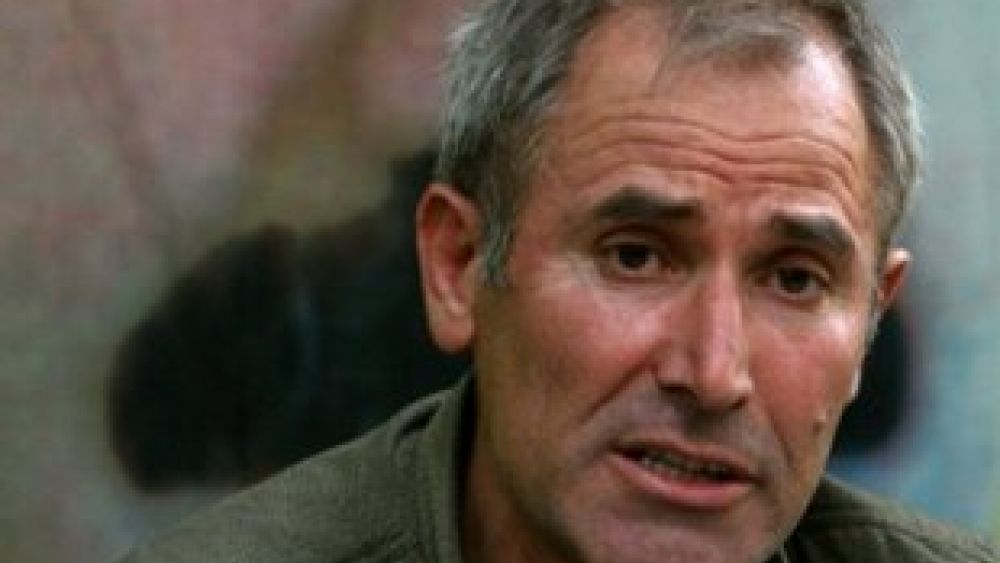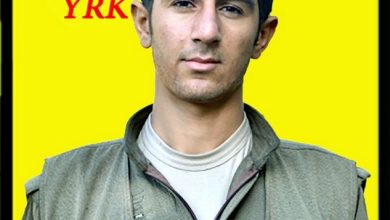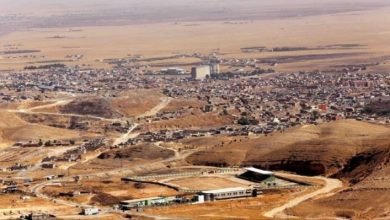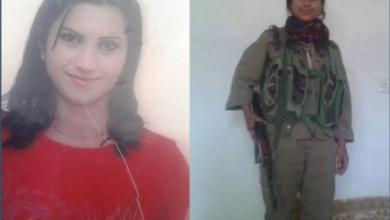Iranian Kurdistan Human Rights Watch has had conversations with a number of former members of the PKK group, and published information about some cases concerning the commanders of that group, including “Leyla Afrin”, “Hassan Mahmoudi”, “Shoresh Bokan”, “Evin Sineh”, “Delkhaz Bingol”, Zulkuf and Azad Hawraz.
The following conversation is about one of the commanders of that group named “Bozan Tekin”, about whom we talked with one of the separated members of the PKK.
The full text of the conversation is as follows:
Please introduce yourself to us at the beginning of the conversation.
My name is “Intiqam Qotur” and in 2011 I escaped from the PKK, and separated from them.
Perhaps the PKK has experienced many heroic deeds in its fabricated history, and imprisoned members who have been arrested for collaborating with or propagating for the PKK have been shown as heroes.
Interestingly, when Iranian members are convicted of being members of the PKK and then released, they are viewed as spies in the PKK environment, but Turkish members of the PKK are considered heroes and gain rank. For example, they are given a medal of honor.
“Bozan Tekin” was one of those who was imprisoned in the eighties and nineties and then released, and came to Qandil afterwards. They hung a medal of honor around his neck and placed him in the PKK leadership council.
Explain about his movement in the PKK.
What I have heard is that he was completely silent in prison, did not meddle in political activities of other Kurdish prisoners there, but then settled in the PKK headquarters.
Do you have a memory of “Bozan” and yourself to describe?
I first saw him at a PKK training camp, where I followed a training called Mazlum Dogan.
He taught the “Prison History Lessons”, which is considered part of the PKK’s history, right after another PKK history lesson taught by Cemil Bayek himself.
When I talked to him, I thought he himself was a founding member of the group, that was how he was acting.
In 2011, I last saw him in Carcella in the Zagros mountains. At that time, the PKK was under intense political and military pressure, and he was tasked with visiting Carcella camps asking why no operation was being carried out. Perhaps it was easy for him to send Kurdish children to imminent death.
In the face of emerging Turkish technology, the Kalashnikovs were just toy guns, and as a result, Turkey cleared all of these strategic areas from the PKK.
Of course, I myself think the PKK has two goals, one of them is cleansing Kurdish children, and the second one is to help Turkey advance in Iraqi Kurdistan, not to be hostile to it, but as a pact between these actors.
Meanwhile, “Bozan Tekin” remained in Russia, living in good standards, and in the winter he would visit the training camps in the snowy mountains and tell the youngsters there, “Look, being a revolutionary requires willpower.”
He himself had remained so much in Russia that he had even adopted the accent of the Russian Kurds there.
Given that you have been with the PKK for some time, what is your analysis of the group’s approach and policies?
There is so much to tell, but time is scarce.
The first issue you encounter when entering the PKK is discrimination between the Turkish PKK members and the small number of Iranian members, in the eyes of the leadership that is dominantly Turkish.
Many Iranian members were ex-prisoners, and were met with a lot of suspicion instead of the ‘welcome hero’ ceremonies Turkish ex-prisoners would receive. Many Iranian ex-prisoners were interrogated in multiple sessions after they had joined the group.
After years in prison, they wondered why PJAK would see them as possible enemies, but of course they had know PKK only in their former strategy and ideology.
The former PKK refers to the strategy of the Kurdish movement, which has changed today and turned into confederalism and ‘brotherhood of the peoples’, which has made the movement turn into the opposite direction, but the PKK does not accept any idea other than its leadership propagates, and it is difficult to criticize them.
The PKK is in fact one large massacre of Kurdish children, and there is no way back from it except a risky escape.
In this decade and century, which is known for the advancement of science and technology, PKK members still suffer from hard circumstances, remaining in forests, mountains and caves.
In this regard, I remember that once we were imprisoned in a cave in the mountains of Turkey for about six months, as mother nature did not allow us any movement. It was the hardest time of my life.






